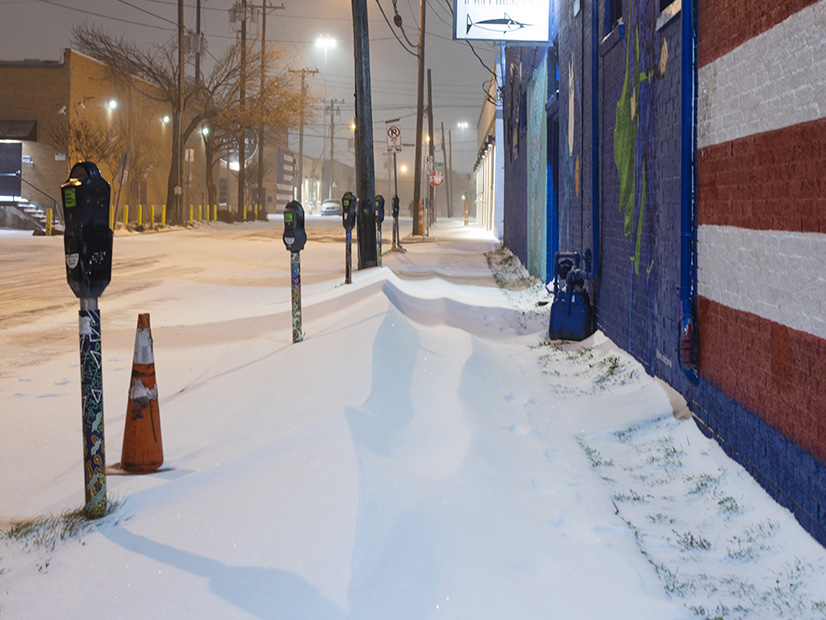
FERC said last week that “by operation of law” it would not reconsider its approval of one of NERC’s new cold weather reliability standards earlier this year because of the expiration of the time limit for its response.
The Electric Power Supply Association (EPSA), the New England Power Generators Association and the PJM Power Providers Group had filed a request for rehearing in March of EOP-012-1 (Extreme cold weather preparedness and operations), which FERC approved alongside EOP-011-3 (Emergency operations) in February (RD23-1).
FERC ordered NERC to develop the standards as Phase 1 of a three-phase process to respond to the winter storm of February 2021 that nearly led to the collapse of the Texas Interconnection. (See FERC Orders New Reliability Standards in Response to Uri.)
In a filing Thursday, the commission said that because 30 days had passed without it taking action on the request, it should “be deemed to have been denied.”
Requirement R1 of EOP-012-1 mandates that generator owners (GOs) installing a new generation unit must implement freeze protection measures that allow the unit to operate for at least 12 hours at the extreme cold weather temperature for its location, defined as the lowest 0.2 percentile of the hourly temperatures measured in December, January and February of each year since 2000.
Requirement R2 requires owners of existing generating units to ensure they can operate for at least one hour at the extreme cold weather temperature, either by adding or modifying existing freeze protection measures.
EPSA and the other organizations objected to these requirements on the grounds that they would “require [GOs] to incur potentially significant costs that they lack a reasonable opportunity to recover through rates.” They urged FERC to either initiate a new proceeding regarding cost recovery or remand the standard to NERC for revisions.
However, the commission said these concerns were “outside the scope of the instant proceeding,” and while it did raise several concerns for NERC to address in the next version of the standard — including the timeline for completion of corrective action plans and the grace period for generators to implement those plans and freeze protection measures — it did not provide for any delay in implementation of the standard or for addressing the groups’ concerns.
The petitioners’ rehearing request claimed that FERC erred by saying cost recovery was not in the scope of the proceeding, arguing that the standard “cannot be just and reasonable” as the Federal Power Act requires that reliability standards provide “a regulated entity of a reasonable opportunity to recover its costs.” EPSA said EOP-012-1 also violates the FPA by imposing requirements on registered entities for the modification or construction of generation facilities.
FERC did not specifically refer to these complaints in its filing last week, but it promised that it would address the rehearing request in a future order. It also affirmed that it “may modify or set aside its … order … in such manner as it shall deem proper.”
EOP-012-1 is set to take effect Oct. 1, 2024. The effective date of EOP-011-3 has not been set; FERC said in its implementation order that it will not finalize the standard’s implementation date until NERC submits its proposed revisions to EOP-012-1.

